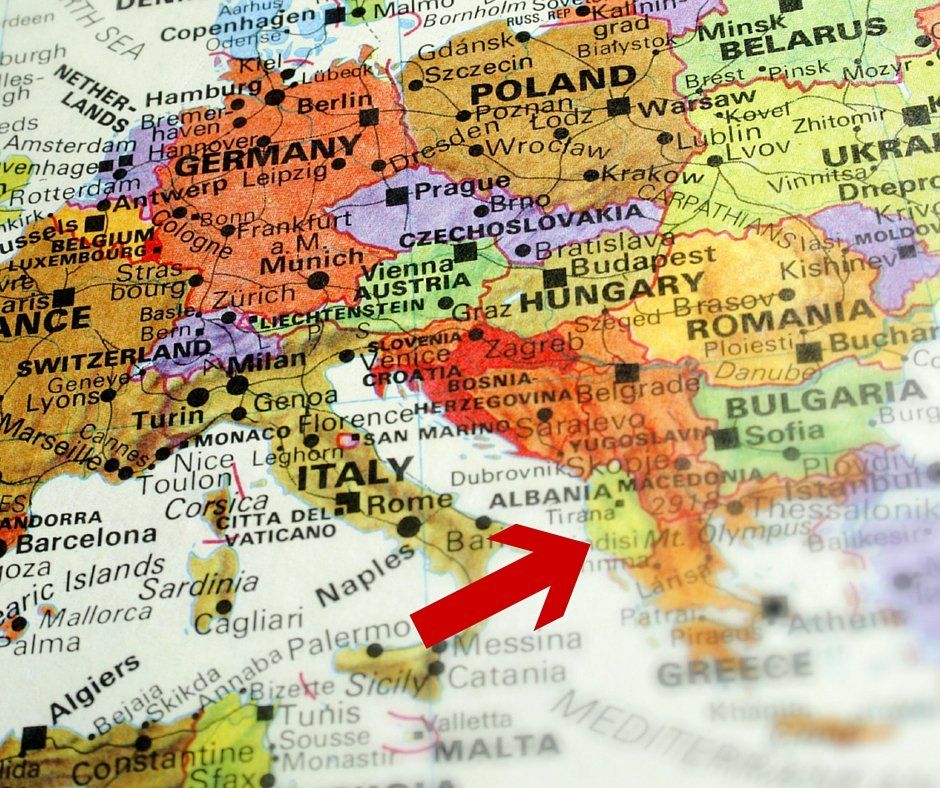My Neighbor Next Door is from...Albania
A monthly blog feature from AAA Translation’s Susanne Evens, My
Neighbor Next Door is from… aims to expand multicultural knowledge and
break down divides by letting readers get to know immigrants from
various countries…one neighbor, friend and/or business colleague at a
time.
This month’s featured country is Albania.
Located on Southeastern Europe’s Balkan Peninsula, Albania is a small
country located north of Greece, with coastlines on the Adriatic and
Ionian seas. Its diverse landscape includes the Albanian Riviera along
its southern coast and the Albanian Alps that cross the country’s
interior. With history stretching back to antiquity, Albania is also
rich in castles and archaeological sites.
We recently
interviewed Elidon Lleshi, who moved to the U.S. not long ago with his
wife, Alida. When he was a teenager, Elidon spent two summers in the
United States as an international exchange student with a program called
Kids Who Care Musical Theatre in Fort Worth. He dreamed of being able
to live in the U.S. someday. Elidon's dream came true when, just as he
was finishing his Master’s degree program in civil engineering in
Albania, he won a U.S. Electronic Diversity Visa Lottery, allowing them
to move to the United States. He now works in his profession for a
construction company in Fort Worth, Texas.
Q. What are the cultural differences between Albania and the USA?
When people ask me this question, I tell them that Albania and the USA
are two different worlds. In Albania, people are economically poor but
emotionally rich. They do not smile or salute to strangers but they keep
a conversation going for hours. People show much sincerity and less
hypocrisy, except in politics. The main social cell is family, where
different generations take care of each other and often live in the same
house. Guests are sacred. We use a phrase from the Albanian Code
expressing hospitality: “An Albanian home is God’s home and Guests’
home.”
Q. What brought you to the U.S.?
After the 2008 world economic crises, the economic and political
situation in Albania has been very depressive, and it is getting worse
everyday. Corruption and organized crime are growing – this stems from
the politicians down. I am so happy to have moved to the U.S. As we say
in Albania, luck knocked on my door, and I won the Electronic Diversity
Visa Lottery, just when I was finishing my Master studies in civil
engineering.
Q. What is something most people don't know about Albania?
There are two important things that people do not know about Albania.
Most people don’t know about the old Albanian Code (Kanuni i Leke
Dukagjinit), which is translated and studied in many countries. This
code determined how Albanians treated each other and outsiders, blood
feuds, and almost everything to institutionalize a society without many
institutions. In 1945, when the communism dictatorship came into power,
they banished this code. In 1990, after communism fell, some Albanians
returned to this code and deformed it for personal interests.
Religion through our history and the religious harmony are very
interesting too. We have a history of thousands of years that has been
deformed or erased many times: from the Illyrian tribes to the modern
Albanians. Like in all ancient civilizations, before Christianity there
was paganism. The Illyrian tribes were touched by Christianity through
the apostle Paul’s journey, three centuries before it became the
official religion of the Roman Empire. After the Byzantine Empire
divided from Rome, Orthodoxy and Catholicism were both present. Then,
from the 15th to the 20th century, the Ottoman Empire brought Islam.
Even though it was a country with a Muslim majority, occupied by Nazi
Germans during World War II, it was one of the few countries where Jews
were safe; they were protected by Albanians. In 1967, the communist
dictator Enver Hoxha declared Albania the only and the first officially
atheist state in the world. If you showed belief in God during that
time, you could go to jail or be killed. After 1990, religion and
believing became legal again. Today, Albanians believe in harmony
through four monotheist religions (Muslim 57%, Catholic 10%, Orthodox
7%, Bektashi Muslim 1%, undeclared 25%), marry between these religions
and respect all of them.
The most interesting part is that
Paganism has survived in north Albania and Kosovo through all this tough
religious history. In these regions, elders would ask you not to kill
snakes and not to walk under the trees during the night because you
might walk over a Fairy or an Ora (a destiny genie in ancient Albanian
mythology).
Q. What do you miss the most?
The people and the nature. You can travel from the coastline through
the plains to the beautiful mountains in less than 2 hours. If you know a
trusted guide or if you have an Albanian friend you can never forget
vacations in Albania.
Q. What is the biggest misconception you encounter when people learn you are originally from Albania?
When people learn I am from Albania, they ask me if I work in an Italian restaurant or work for the mafia.
The mafia prejudice is what I do not like because I think most Albanians are honest.

